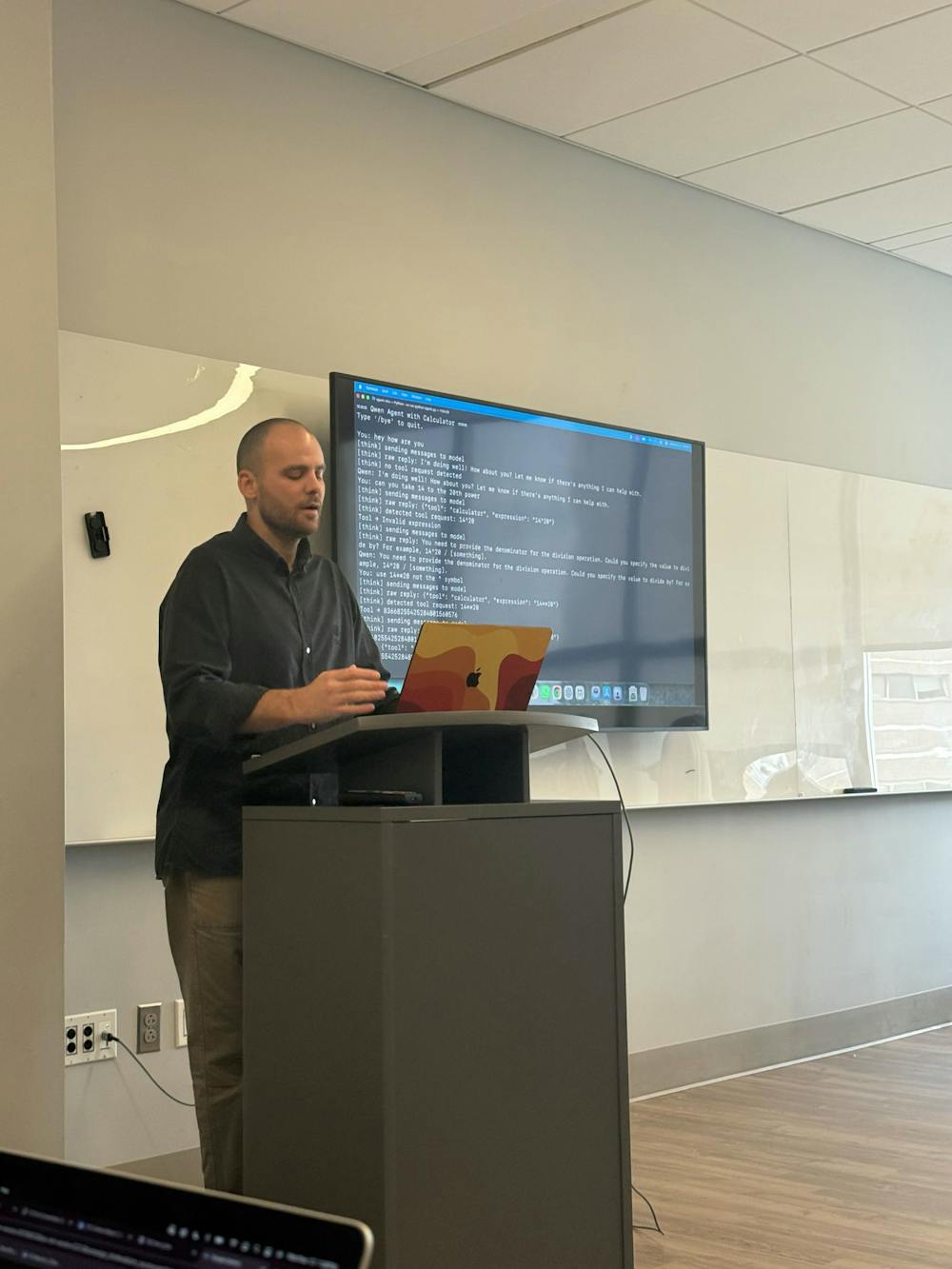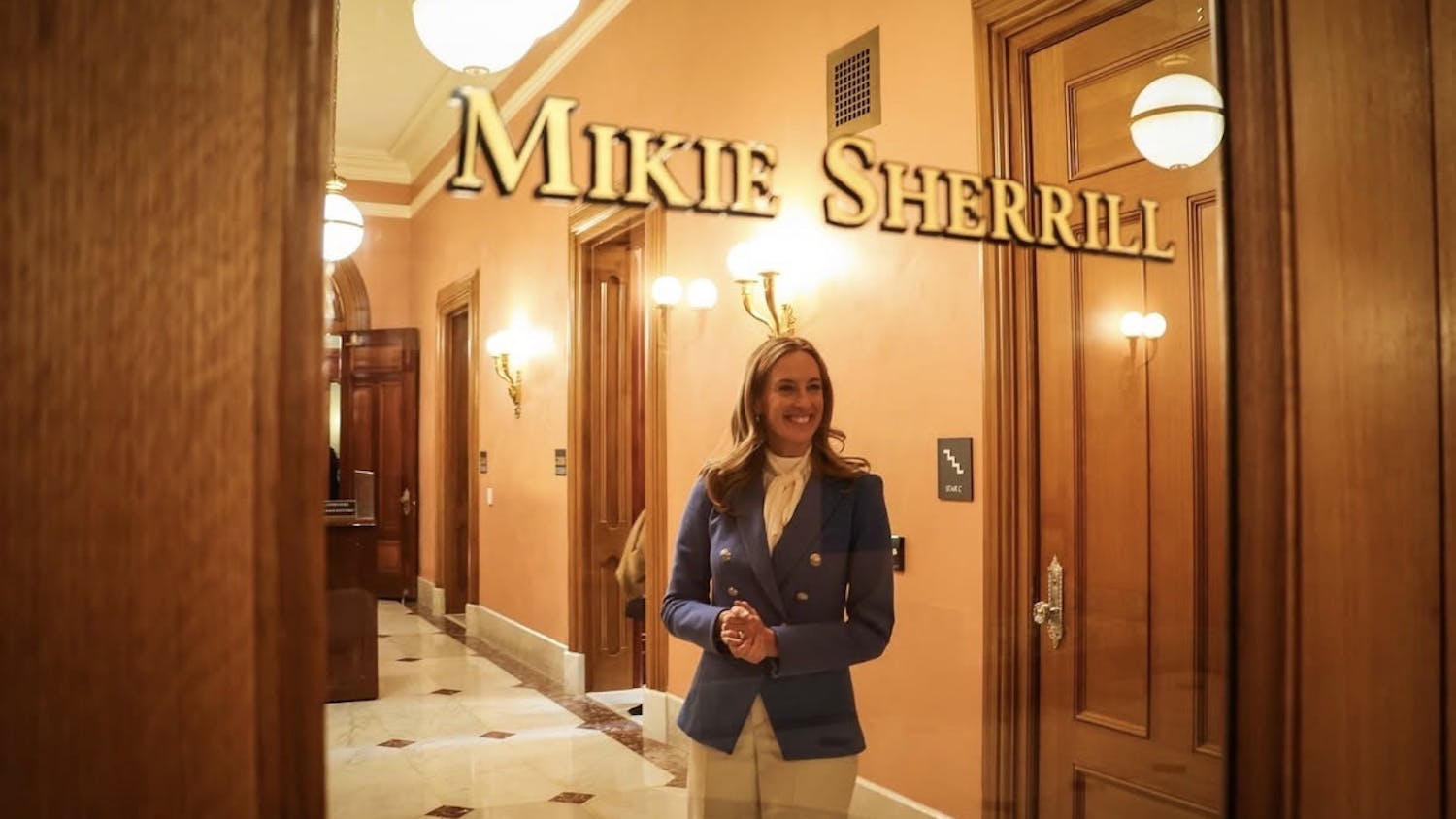The Teaching, Learning and Technology Round Table’s (TLTR) Artificial Intelligence committee held an event on Nov. 12 to inform students and staff about how best to utilize artificial intelligence (AI) programs like ChatGPT and Claude AI in school.
The event was to “bring in different perspectives” because of how AI is a common perplexity, said Dr. Jessica Rauchberg, the event coordinator and assistant professor in the Department of Communication, Media and the Arts.
The event’s speaker was Dr. Joshua Meyer, a 2012 Seton Hall alumnus with a doctorate from the University of Arizona.
Meyer is a great pro-AI contrast compared to previous AI speakers who spoke about how AI negatively impacts the environment, Rauchberg said.
“AI is here, it’s here to stay,” Meyer said. “Not using it is almost a disservice. Once you get to the workforce, you need it 100 percent.”
Rauchberg added that the committee wanted to “teach people how to use it effectively…[and] to help people feel empowered to have different perspectives about AI.”
She thinks it’s important to understand the problems AI is trying to solve and the reasons behind using it.
Meyer emphasized that although AI should be used, there are also ways to use it incorrectly.
“I think that there [are] right ways to use it, wrong ways to use it and generally speaking if you understand it a little more deeply…,” Meyer said. “I think that can help inform how you’re gonna use it over time so you can use it better.”
“It’s a tool like any other tool,” he added.
Meyer also emphasized that AI is not something to fear when properly used, comparing it to the introduction of Google.
“When Google came out, it didn’t make research die,” he said. “It made research a lot easier.”
While he sees the benefits, Meyer doesn’t think that AI is infallible and expressed concerns about how most students let it have control.
He used an analogy that students “let the AI be the pilot and the user just ends up being the passenger and that’s not the right way to do it.”
Meyer explained that most open-prompt AI chat boxes, such as ChatGPT and Claude, don’t always know facts, but can predict the next word using commonly repeated sentences from the internet.
Looking ahead, Meyer remains optimistic about the role of AI comparing it to autocorrect.
“Nobody would say…you can’t use autocorrect,” Meyer said. “I see AI as…in the same class as tools as autocorrect.”
He said he hopes that educators will “accept this as a new kind of technology” and, if there is room for it in the subject, allow it in their classrooms. He argues that “not using [AI]…is not doing yourself any favors.”
Joseph Tippets is a writer for The Setonian’s News section. He can be reached at joseph.tippets@student.shu.edu.





